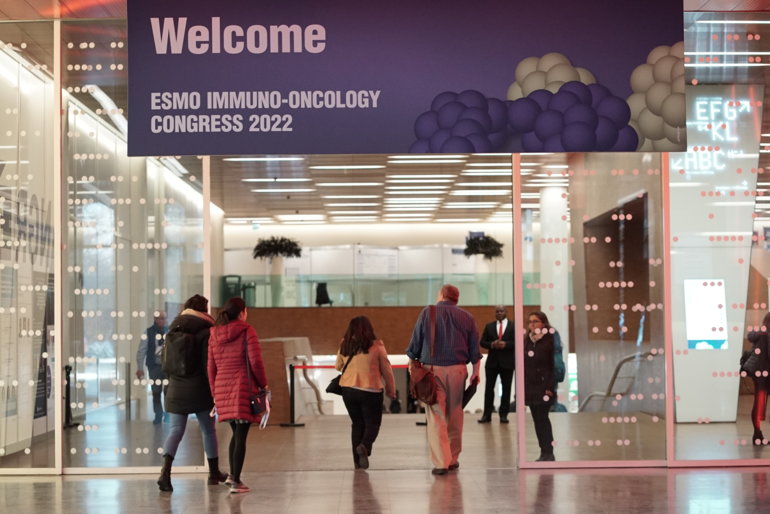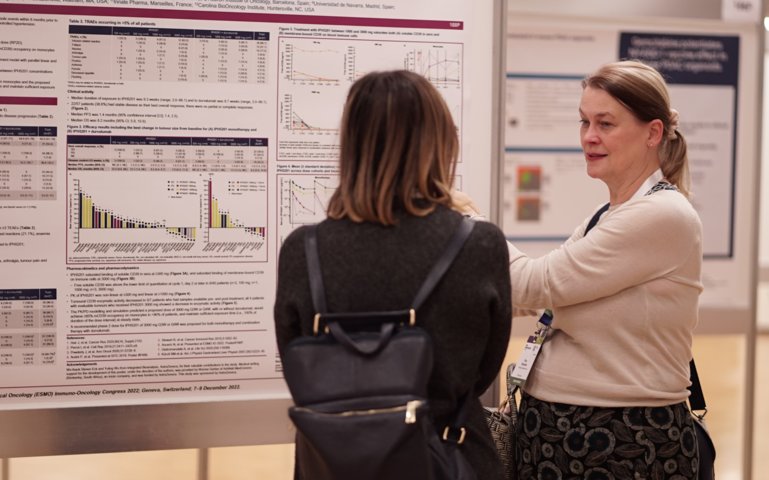
Promising results for an FGFR 1–3 inhibitor in molecularly altered tumours
CPL304110 shows acceptable toxicity and early signs of activity in heavily pre-treated patients with advanced solid malignancies

CPL304110 shows acceptable toxicity and early signs of activity in heavily pre-treated patients with advanced solid malignancies

Two recently published studies provide preclinical insights into ‘training’ CAR T cells that may potentially lead to more effective and less toxic immunotherapy approaches

Combination therapy with BMS-986253 shows promise in patients progressing on checkpoint inhibitors

Pre-treatment expression of Ki-67 plus FOXC1 plus PD-L1 predicted response to neoadjuvant treatment in breast and head and neck tumours, although more work is required to determine its use in the context of immunotherapy alone

A joint analysis of the OnCovid and ESMO-CoCARE registries confirms the protective role of anti-SARS-CoV-2 vaccination in cancer patients treated with immunotherapy

However, improved outcomes are reported in PD-L1-positive patients only irrespective of post-operative and post-chemotherapy ctDNA status, calling into question its predictive value

Phase III trials are planned to assess combined KRAS G12C inhibition/checkpoint inhibition as first-line therapy

Positive results from a phase II trial adds weight to the value of immunotherapy as neoadjuvant treatment for resectable NSCLC

Phase II study indicates that SHR-1701 alone or together with chemotherapy may be a valuable induction strategy in stage III unresectable NSCLC

Due to the current widespread use of immunotherapies and their increasing complexities, further immune-oncology education is needed in medical schools and beyond
This site uses cookies. Some of these cookies are essential, while others help us improve your experience by providing insights into how the site is being used.
For more detailed information on the cookies we use, please check our Privacy Policy.
Necessary cookies enable core functionality. The website cannot function properly without these cookies, and you can only disable them by changing your browser preferences.